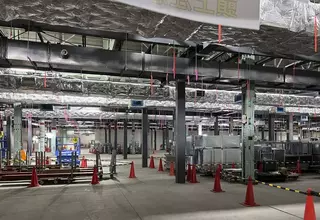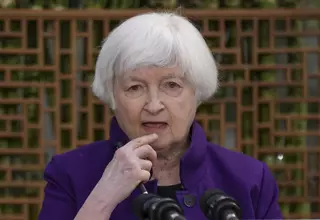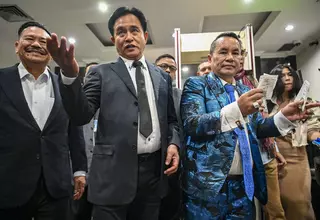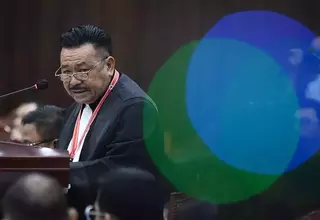Rising Unemployment Piles Up Problems for President Joko Widodo
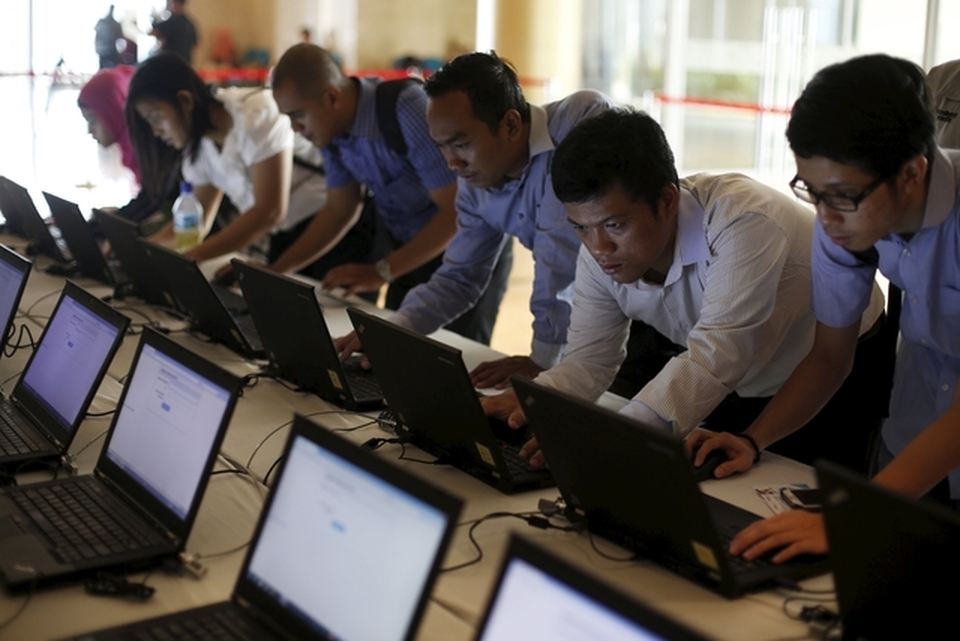
Jakarta. Indonesian companies are shedding jobs as they grapple with the weakest economic growth in six years, adding to the troubles facing President Joko Widodo, who was elected last year on pledges to dig the country out of a rut.
Government data might suggest no cause for alarm ̶ unemployment was 5.81 percent in February, up only slightly from 5.70 percent a year earlier ̶ but the official numbers are notoriously unreliable and don't adequately cover the informal sector, which is two-thirds of Southeast Asia's biggest economy.
Recent reports of heavy lay-offs across the country paint a bleaker picture, and business executives, recruitment firms and jobseekers say it is getting worse.
Young people are being hit hardest; the International Labor Organization estimated the youth jobless rate was more than 20 percent in 2013, and economists believe it is higher now.
About a third of the workforce is aged 15 to 29, a youth bulge that could bring Indonesia, a country of 250 million people, the sort of demographic dividend China and South Korea enjoyed a generation ago ̶ but only if there are jobs for the 2 million people joining the workforce every year.
"The government doesn't have a blueprint for labor absorption," said property businessman Hariyadi Sukamdani, chairman of the Indonesian employers' association.
"If this condition is allowed to continue, what we would get is not a demographic bonus, but a demographic disaster. There could be social turmoil and higher crime rates."
Jobless in Jakarta
When he took office eight months ago, Jokow said he would pour billions of dollars into infrastructure and foster growth in manufacturing.
But the promised splurge on roads, power plants and ports has not materialized, largely because of bureaucratic hold-ups and land disputes, and a shortage of skilled labor is holding back growth in value-added industries.
Miners have been hammered by a double whammy: a ban on mineral ore exports and a sharp drop in commodity prices.
Meanwhile, labor-intensive industries such as textiles and manufacturing have been hit by the rupiah's slide to a 17-year-low, which has raised the cost of imported raw materials.
Hundreds of redundant garment factory workers protested for hours this week in the financial district of Jakarta, the capital, after their company was declared bankrupt and its assets seized by two banks.
Unemployment in turn is hitting consumption, which makes up more than half of Indonesia's economy. Automobile sales in May fell 18.4 percent from a year earlier, the ninth decline in a row.
"Stocks are piling up because nobody is buying. The people's purchasing power is weak," said Ade Sudrajat, head of Indonesia's textile association. "This has never happened before in the last 45 years."
Expat exit
Arif Budimanta, adviser to the finance minister, said the government was introducing measures such as halving lending rates for small businesses and exempting most goods from a luxury tax to stimulate consumption.
At job fairs in Jakarta the gloom is palpable.
Naomi Octiva Naibaho, a manager at the Kompaskarier.com portal that ran one such fair recently, said about 6,000 jobseekers turned up every day, roughly triple the number of positions on offer.
Gita Harahap, 26, has been sending resumes for weeks since the bank where she worked as a teller started a round of lay-offs, but she has had no luck.
"No one has called me back," she said. "The competition is tighter."
In the first five months of this year, 79 companies approached the University of Indonesia (UI) for potential recruitment, down from 110 over the same period of 2014, said Sandra Fikawati, head of the university's career development center.
The slowdown is also affecting higher-paid jobs, including in financial services, said Rob Bryson, Indonesia country manager for recruitment firm Robert Walters.
From mid-2013 to late last year, the number of foreigners holding work permits in Indonesia is estimated to have dropped 20 percent to around 62,000, partly because expatriate jobseekers saw more opportunities in Western countries, he said.
"Companies here are looking to increase productivity," Bryson said. "They will happily hire one person and let go of two in many circumstances, so that adds pressure to the employment scene."
Reuters
Tags: Keywords:POPULAR READS
Nissan to Make Next-Generation EV Batteries by Early 2029
Solid-state batteries are widely seen as the next step for EVs.Airlangga Set to Extend Leadership in Golkar After Election Success
Under his leadership, Golkar rose to the second position in the legislative polls and successfully made Gibran the elected vice president.Yellen Says Iran's Actions Could Cause Global 'Economic Spillovers'
Iran's missile attack on Israel early Sunday came in response to what it says was an Israeli strike on Iran's consulate in Syria.Takeaways from Prabowo's Responses to Legal Motion Contesting His Election Win
Part of the argument addresses the claim that the candidacy of Gibran Rakabuming Raka, Prabowo’s running mate, is unlawful.Prabowo Camp Cites ‘Procedural Error’ in Legal Challenge by Rival Candidates
The Constitutional Court's main task is to address alleged discrepancies in vote tallies, which neither of the plaintiffs challenged.Popular Tag
Most Popular















